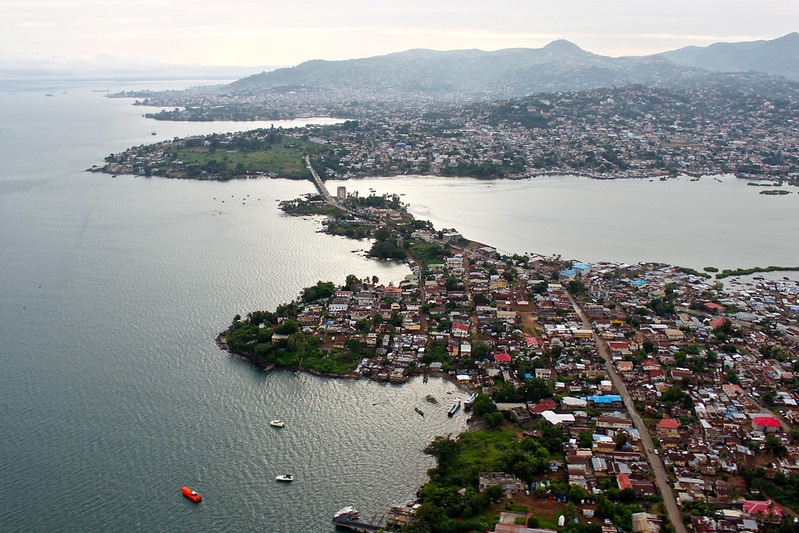An initiative called the Green Climate Fund, that is supported by the UN Development Programme (UNDP), has approved USD$17.2 million in funding for a project that will work to improve climate resilience in Monrovia, Liberia, protecting 250 000 people from the harmful effects of extreme weather events.
—
What is Happening?
- The six-year Monrovia Metropolitan Climate Resilience Project will be implemented by Liberia’s Environmental Protection Agency with the support of the UNDP. The project aims to respond to the climate change-related impacts of sea-level rise, coastal erosion and urban encroachment into vital mangrove ecosystems. The Government of Liberia is providing $8.4 million in co-financing for the project.
- The project will indirectly benefit 1 million people- a quarter of the country’s total population- through the adoption of an integrated coastal zone management system for Liberia.
Professor Wilson K. Tarpeh, Executive Director, Environmental Protection Agency of Liberia, says, “To protect our people from the existential risks posed by the climate crisis, this project will expand our coastal defenses, enhance livelihoods, create new economic opportunities, and improve the protection of the vulnerable mangrove ecosystems in the Monrovian Metropolitan Area.”
- In the last 10 years, coastal erosion has caused the shoreline of Monrovia’s impoverished and densely populated settlement at West Point to regress approximately 30 metres. Overall, more than 670 dwellings have been lost already and critical fishery businesses are at risk. An additional $40-$48 million in climate change-related damages could occur at West Point by 2100 if nothing is done.
- This project will construct a rock revetment to protect West Point against coastal erosion and storms. Additionally, it will improve institutional capacity and policy support for integrated coastal zone management across Liberia, protect ecosystems mangroves, and strengthen gender- and climate-resilient livelihoods to build climate resilience in the vulnerable communities of Monrovia.
- The project is just one of a number of UNDP-supported projects that are building coastal resilience, fostering climate-resilient agriculture, strengthening climate information and early warning systems and supporting the government’s National Adaptation Plan.
Stephen Rodriques, Resident Representative, UNDP Liberia, says, “I recently visited some of the areas where this coastal resilience work will be done. I saw the communities and met with many of the women and men whose lives and livelihoods are directly threatened by the sea-level rise. This is what the Paris Agreement is about; about climate change creating real risks to people and their ways of life, and why it is so important that we learn to better coexist with nature. These coastal protection measures are extremely important, particularly for the vulnerable communities and populations whose livelihoods are at risks, but in the long term we have to take better care of our planet.”
You might also like: This Startup Works Out the Carbon Footprint of Your Grocery Receipt
- Liberia faces significant risks as a result of climate change due to the fact that there is a high level of dependence on climate-sensitive activities, like rain-fed agriculture, which makes the country vulnerable to climate variability and change – higher temperatures, more extreme weather events such as heavy rains, and rising sea levels.
- Examples of threats to critical infrastructure include two of Liberia’s premier health facilities, which are seriously threatened by sea erosion.
- Another consequence of climate change is involuntary migration due to coastal erosion, flooding and drought, which all trigger land disputes over land and other resources, which has security implications.
Featured image by: Flickr

















